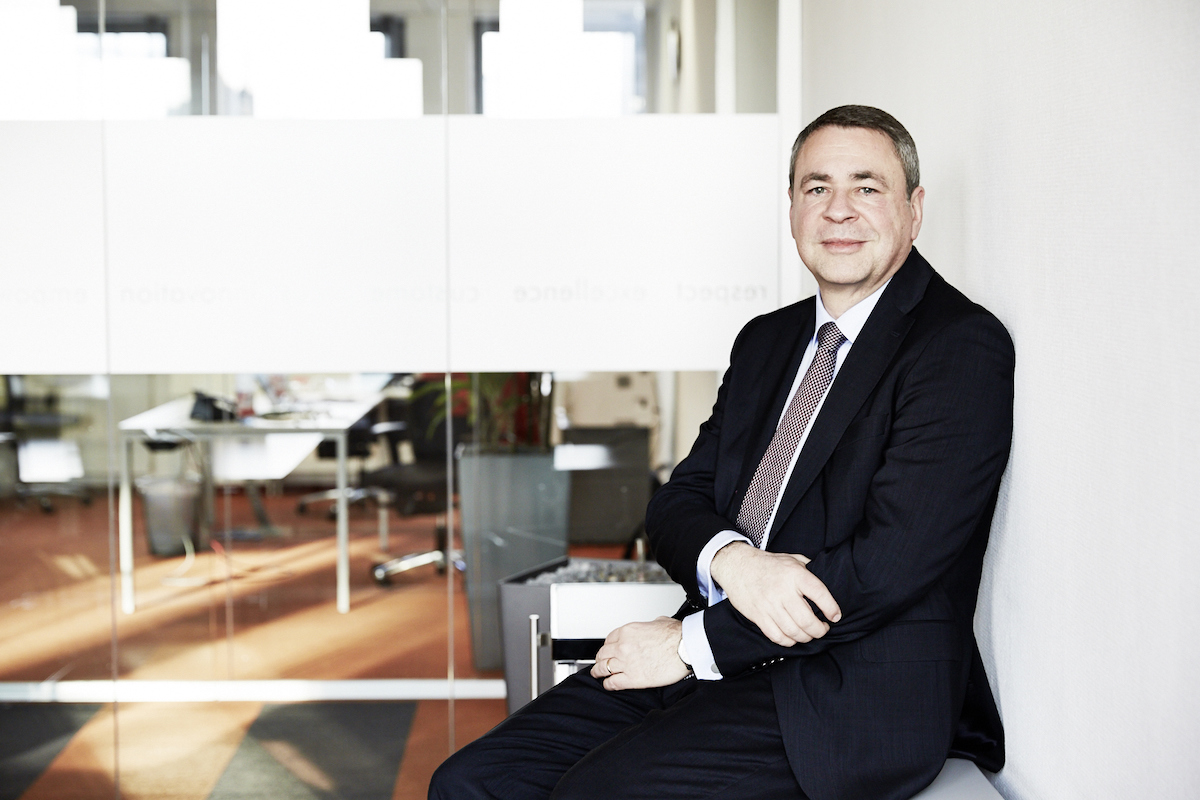Alumina expertise: Henning Stams
Almatis is the global market leader in its industry, and CEO Henning Stams is thrilled to play a role in its success story.
It’s common knowledge that diamond is the hardest naturally occurring substance on earth. But what’s the second? It’s a lesser-known material that Henning Stams understands well;
as the CEO of Almatis, he works with it every single day. "It’s alumina, or aluminium oxide, which is a very versatile material," he explains. "It’s extremely robust; it’s heat-resistant, corrosion-resistant and abrasion-resistant. It also has other unique properties. It
has a very high dielectric strength, which means we’re able to use it in electronics, spark plugs, high voltage insulators and so on.
It’s white in colour and hence can be used in paper manufacturing, but also for water treatment, catalyst carriers, or even for smartphone glass. It can be 3D printed, it’s inert, it’s harmless, and it’s also biocompatible. There’s lots of potential, technology-wise, beyond the many applications we already have today with this substance."
Henning has been at the helm of Almatis (which is an acronym for Alumina Materials, Innovative Solutions) since December 2015. He says he was excited to take up the challenge to lead a company he knows has a strong future ahead of it. "What else could a CEO want as an environment to work in than one that has an extremely bright future?" he notes.

Almatis is the world-leading developer, manufacturer and supplier of premium alumina and alumina-based products. It offers the most comprehensive product portfolio in its industry, serving three core markets — refractories, ceramics and polishing — and meets the needs of customers from 16 strategically located sales, research and production sites.
It has been operating successfully for more than 100 years, something which Henning recognised when he joined the company for the second time. You see, Henning was first employed by Almatis in 2004 for two years as its CIO before leaving to pursue other professional interests. Then, in 2008, he returned as the company’s vice-president of supply chain and IT before being promoted to CEO in 2015.
What else could a CEO want as an environment to work in than one that has an extremely bright future?
"I think we have many key strengths at Almatis. We are the global market leader; we have a long history of technology, and there are many products out there that were invented by us. What I wanted to do was capitalise on our strong technological competence and use that expertise to offer solutions that many of our competitors, especially in China, cannot offer. I also wanted to use that to innovate together with our customers.
But when you want to change things, you need to have a lot of trust and credibility first. You can only get that when you walk the talk, when you do what you say you will do, and when you show a high level of integrity. The most damaging thing you can do is come in like a helicopter, whirl up a lot of dust, and then leave again."
Henning’s initial strategy was made up of three parts. The first was to further strengthen the key reasons customers choose to work with Almatis in the first place: its consistency and reliability, combined with its global footprint. The second was to position its Louisiana-based alumina refinery as a specialty producer and strengthen its profile in the niche market. The third was to place an investment focus on developing markets, such as China and India.
While these core elements are consistently rolled out, Henning also wants to ensure that Almatis is ahead of the technology curve, is focused on innovation, and has a high degree
of technical competence. "The more we truly and scientifically understand the customer production processes, the more we will know about what solutions we can create that will add value for them," says Henning. "That is the number one priority for us
as a company and something that I am strongly focused on."
To conclude, Henning shares that customer collaboration is key. "We are part of the workbench of our customers; we develop solutions together with them and we use our special know-how to help them. Doing that in a very developed way is certainly something that sets us apart from many of our competitors."